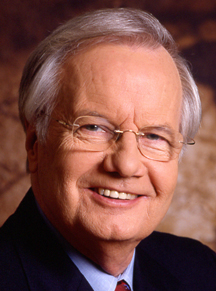 [D]epression is not a human defect at all, but a defence mechanism that in its mild and moderate forms can force a healthy reassessment of personal circumstances.
[D]epression is not a human defect at all, but a defence mechanism that in its mild and moderate forms can force a healthy reassessment of personal circumstances.
[...] There are benefits and that's why it has persisted. It's a tough message to hear while you are in depression but I think that there's a life afterwards
I have received e-mails from ex-sufferers saying in retrospect it probably did help them because they changed direction, a new career for example, and as a result they're more content day-to-day than before the depression.
One woman left an abusive relationship and moved on and might not have done if depression had not provided the necessary introspection.
Similarly, unrealistic expectations are revised when depression sparks a more humble reassessment of strengths and weaknesses.
Keedwell On The Benefits Of Depression
Posted
5/23/2008
0
comments
![]()
Peter Mayle On Love's Hunger
 I would like a lifetime spent
I would like a lifetime spent
with an irrational and suspicious goddess.
Some short-tempered jealousy on the side.
A bottle of wine that tastes like you
and a glass that's never empty.
Posted
5/23/2008
0
comments
![]()
Leif Parsons On Lying
 Liars change the subject quickly. Liars look up and to their right when they speak. Liars use fewer contractions. Liars will sometimes stare straight at you and employ a dead face. Liars never touch their chest or heart except self-consciously. Liars place objects between themselves and you during a conversation.
Liars change the subject quickly. Liars look up and to their right when they speak. Liars use fewer contractions. Liars will sometimes stare straight at you and employ a dead face. Liars never touch their chest or heart except self-consciously. Liars place objects between themselves and you during a conversation.
Posted
5/10/2008
0
comments
![]()
Peter Moskos On Police Use Of Force
 I have three main problems with Tasers: 1) they’re used too readily, 2) the pain they cause isn’t geared toward the compliance I want, and 3) people die.
I have three main problems with Tasers: 1) they’re used too readily, 2) the pain they cause isn’t geared toward the compliance I want, and 3) people die.
[...] If I followed departmental policy, I could have maced about 3 people a shift. Instead, I maced one person in 14 months. Mace has a natural check and balance: it goes everywhere. No officer quick with the mace will be popular in the department for long.
Physical force can often be done without too much pain. And the pain caused is directly proportional to your resistance. For instance, I need you to put your hands behind your back. I use force. Force isn't the same as pain. It might hurt if you fight it. But as soon as you stop resisting, any pain is over.
Officers use Tasers quicker than they otherwise would apply hands-on force. "Comply or I Taze you." You don't comply so I Taze. Clean and legal. But wrong because it's not necessary.
We're talking about pain compliance... hurting somebody. Tasers cause pain as punishment. That's not right. We shouldn’t pretend that causing pain is clean process. It never is.
Force is part of the police job. No suspect puts handcuffs on himself.
Without a Taser, I just say "Comply." You don't. So I keep talking to you, cajoling you, ordering you, threatening you. But the point is I'll work harder trying to convince you to comply if my only alternative is hands-on force. Officers *should* be reluctant to use force. You don't want to use physical force because there is some danger... and also you break a sweat--something you always want to avoid while wearing body armor. Departmental regulation be damned! It’s too easy to press a button.
When I do use hands-on force, at least my force is geared toward getting you to do what I want (like getting your arms behind your back so I can cuff you). With a Taser, it's just about disabling pain. That's torture. And consider this, it's not easy to follow instructions after being in the greatest pain of your life. So you get tazed again.
Posted
5/10/2008
1 comments
![]()
Moyers On Regan's Legacy
 Reagan's story of freedom superficially alludes to the Founding Fathers, but its substance comes from the Gilded Age, devised by apologists for the robber barons. It is posed abstractly as the freedom of the individual from government control--a Jeffersonian ideal at the root of our Bill of Rights, to be sure. But what it meant in politics a century later, and still means today, is the freedom to accumulate wealth without social or democratic responsibilities and the license to buy the political system right out from under everyone else, so that democracy no longer has the ability to hold capitalism accountable for the good of the whole.
Reagan's story of freedom superficially alludes to the Founding Fathers, but its substance comes from the Gilded Age, devised by apologists for the robber barons. It is posed abstractly as the freedom of the individual from government control--a Jeffersonian ideal at the root of our Bill of Rights, to be sure. But what it meant in politics a century later, and still means today, is the freedom to accumulate wealth without social or democratic responsibilities and the license to buy the political system right out from under everyone else, so that democracy no longer has the ability to hold capitalism accountable for the good of the whole.
Posted
5/10/2008
0
comments
![]()
Overheard In Bermuda
Donald: There, you just heard it from the horse's mouth.
Kevin: Did you just call Calvin a horse?
Calvin: Nay.
Posted
5/10/2008
0
comments
![]()

